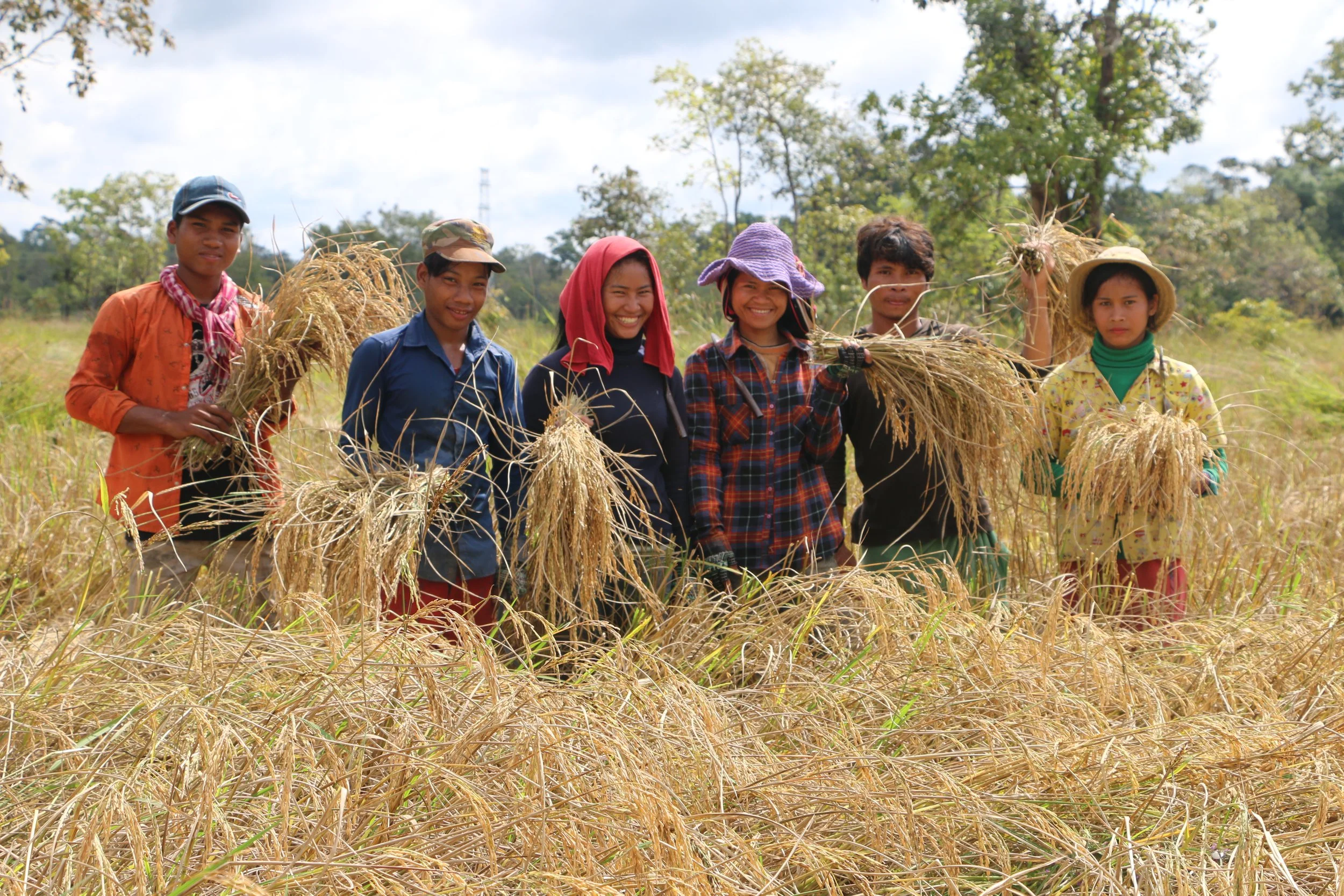Feature: Farming & Fermenting
Rosie Greenaway meets two brands demonstrating market-leading approaches to supply chain sustainability, as she samples the latest ‘paddy to plate’ innovation and discovers how ‘misfit’ vegetables can transform into the summer’s hottest new sauce.
If a single product could encapsulate ‘what regenerative farming can mean for a healthy planet and healthy consumer’, then IBIS Rice CEO Nick Spencer believes the brand’s new launch would be it.
Meet its new Organic Bean & Rice Cakes: a product which demonstrates joined-up thinking across its entire supply chain and strives to achieve the most sustainable credentials, from environmental transparency and social impact to the responsible sourcing of raw ingredients and the community benefits of processing, packing and marketing in Cambodia, where the crops are organically grown and harvested.
Paddy to plate
The Bean & Rice Cakes serve as an example of how the right approach to production can positively impact the whole food chain – soil, wildlife, farmer and end consumer — from paddy to plate.
Known as a conservation pioneer which tangibly reduces deforestation, protects endangered species in Cambodia and builds stronger futures for farming families, IBIS Rice has taken a soil-first approach to NPD, employing inter-cropping techniques with red black-eyed beans to replenish the ground with essential micronutrients and increase harvest opportunities for growers.
Spencer explains: “An organic rice farm needs to have nitrogen replaced in the soil. An organic rice farm growing this really high-quality jasmine, until now, had one rice crop a year to earn a living from per rice field. What this bean crop does that’s so amazing is it puts nitrogen back in the soil, as well as other micronutrients and organic matter, and it gives the farmer two more opportunities a year to earn an income.”
With rice yields improved by the nutrient-boosted soil, Spencer believes at a farming level regenerative organic agricultural practices such as this represent real hope for a future which moves forward from ‘the green revolution and extractive agricultural approach.”
Back to the future
He adds that as organic certification becomes more complex and expensive for smallholders, this approach provides financial security and confidence to farmers, through increased earning frequency and the potential to invest in their farms. “We’ve been piloting this crop rotation with cover crops for five or six years. This type of bean is something that was grown in the area but had never really been commercialized, and it’s our ability to produce it under organic certification and put it into these finished products that allows us to make the correct investments at farm level to make it viable for the farmers. That means small, wildlife-friendly ponds to supply extra water, traditional fencing, agronomy support. Because we can produce it on certified land, we can instantly pay the farmer above market price – suddenly the whole economics make sense. We’re taking a household garden bean to commercial scale.”
Food system fix
At a nutritional level Spencer praises the product’s high protein and fibre profile. “When you do healthy things on-farm, you get interesting, tasty wholefood products for the consumer. To lean into Chris Packham’s narrative, 80% of farmland produces 20% of calories because of animal production. What this is showing is that regenerative agriculture can provide really compelling organic nutritional offerings whilst [improving] land use, soil health and farmer wellbeing. This is how food systems were meant to be; we broke them. It’s a glimpse back to the future of how food systems can be again.”
Sauce with substance
Coming at supply chain sustainability from a waste perspective are the creative minds at fermented food brand Complete Organics. Best known for delivering high-quality, organic, unpasteurized kraut and kimchi, the company has now launched a trio of Sriracha sauces (Mild, Spicy and Smoky), each created from its trademark ‘misfit’ vegetables — lovingly fermented instead of wasted.
Janis Englert, executive manager, explains: “A significant portion of the vegetables we use — like carrots, beetroot, radish or Chinese cabbage — fall outside the standard retail calibration. These are often oversized or slightly irregular in shape and would typically be [rejected] by conventional retail due to cosmetic or size specifications. For us, that’s not an issue. We focus on quality and flavour, not perfect looks, so we’re able to make good use of this kind of produce and help reduce unnecessary food waste in the process.”
Working closely with ten farms in Bavaria, the German brand has formed long-term relationships with its growers, developing over time a ‘strong mutual understanding’ around shared food waste objectives.
The new Sriracha sauces — every bit as flavoursome and punchy as you’d expect from these fermentation connoisseurs — are a stroke of genius. “Creating shelf-stable products without pasteurization is a real challenge; it brings a whole set of restrictions, especially when working with active fermentation. It was a truly cross-functional effort involving product development, production, sourcing, sales and marketing. Each round of testing took several weeks due to fermentation timelines, so patience was key.”
Bold and tangy
The result is a clean label collection of unique organic sauces which are naturally fermented and rich in active cultures.
“The fermentation not only delivers a bold, tangy umami flavour, it also offers genuine gut health benefits. It’s hot sauce with substance. That’s something we think really resonates with today’s health-conscious consumer,” says Englert.
By Rosie Greenaway, editor




